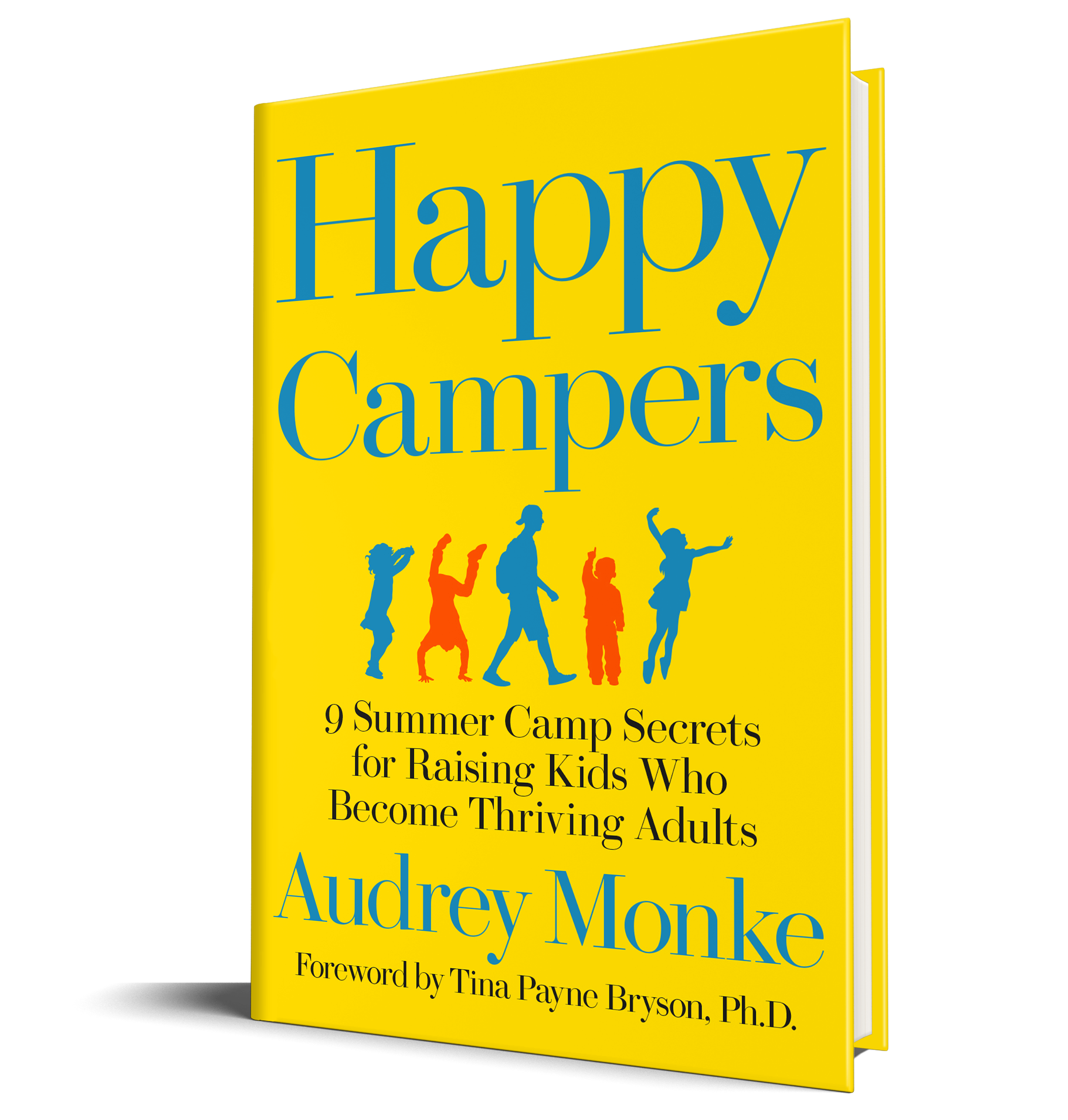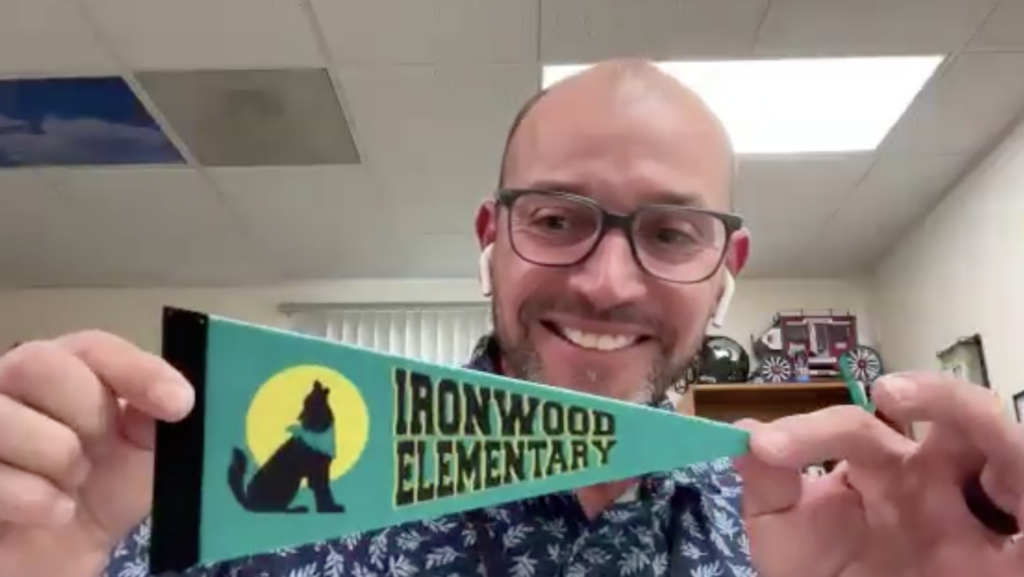Episode 80: The Magic of Camp (Happy Campers Book Excerpt)
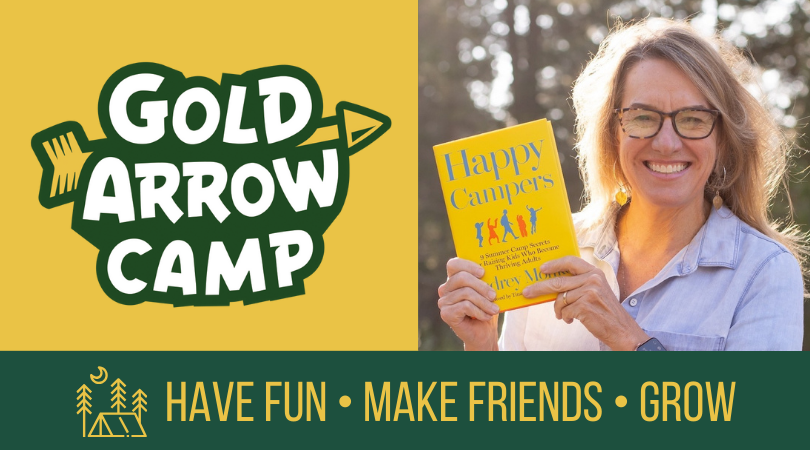
This week on the podcast we’re featuring a short excerpt from the introduction to Audrey “Sunshine” Monke’s book, Happy Campers: 9 Summer Camp Secrets for Raising Kids Who Become Thriving Adults.
Learn about the research-based, intentional practices behind the “magic” at Gold Arrow Camp in this episode, The Magic of Summer Camp.
About Happy Campers
Why are kids more optimistic, resilient, independent, and competent
after just a few weeks at summer camp?
Why do they feel less depressed, anxious, and disconnected at camp than they do anywhere else?
Why are so many campers heartbroken when it’s time to go home?
Veteran summer camp director Audrey “Sunshine” Monke, psychologist and parenting expert, shares what she’s learned from three decades of creating a summer camp that kids call their “happy place” and “second home,” a culture where research has proven kids become happier while gaining important social and emotional skills in just two weeks.
Based on thousands of interactions with campers, camp counselors, and parents, and on academic research in positive psychology, Happy Campers introduces a framework of intentional strategies to help parents create the same kind of transformational culture that kids experience at camp. Instead of raising a generation of kids who are overwhelmed, anxious, depressed, and unable to function as independent and responsible adults, parents can create an environment at home that promotes the growth of important character traits and social skills that kids need in order to have meaningful and successful lives. Complete with specific ideas to implement these summer camp secrets at home, Happy Campers is a one-of-a-kind resource for parents wanting to raise happy, socially intelligent, successful kids.
Podcast: Play in new window | Download
Subscribe: Spotify | Email | RSS
Episode 79: Creating a Happier World – The GAC Philosophy

Join Sunshine, Chelster, Gem & Delta for a chat about Gold Arrow Camp’s Vision, Mission, Goals. Learn about the positive habits and character traits we want our campers and staff to take with them far beyond their time at camp. Learn WHY Gold Arrow Camp exists and about the vision we have of creating a happier world, one camper at a time.
Watch a video about Gold Arrow Camp here.
Learn more about the Gold Arrow Camp philosophy here.
Hear what campers say about GAC here.
Podcast Credits
Music by Henry “Dobro” Johns
Narration (intro & outro) by Henry “Bravo” Pederson
Produced by JRS Production Creative Audio
Podcast: Play in new window | Download
Subscribe: Spotify | Email | RSS
Episode 78: Creating a Happier World with Speed
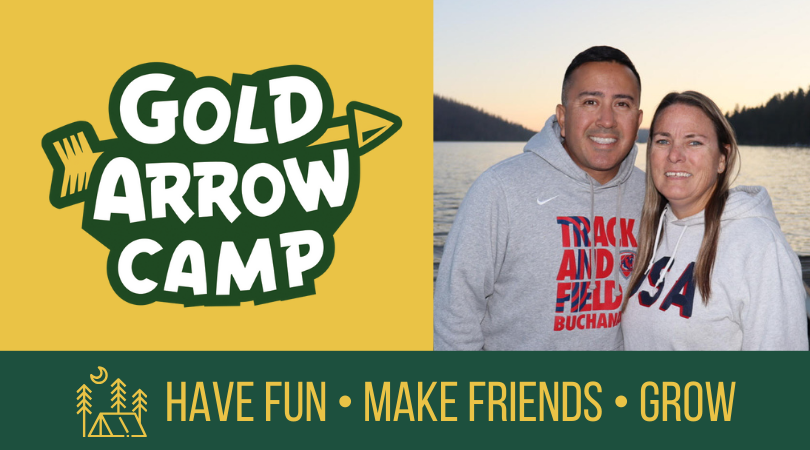
This week on the Gold Arrow Camp Podcast, Sunshine chats with Armando “Speed” Negrete about the lasting positive impact of his experience as a GAC staff member in the late 1990s and early 2000s. The communication and leadership skills he learned at GAC are professional skills Armando uses today as a Lead Public Safety Dispatcher (9-1-1), a track and cross country running coach, and a sports photographer. Armando also shares about how the skills he learned and practiced as a Group Counselor are ones he still uses and benefits from as a parent.
“I remember how incredibly in awe I was of the camp ground,
of all the different activities that Gold Arrow Camp offers.
I was just completely awestruck.”
Armando “Speed” Negrete
Article about Armando’s return to Fresno State to get his Bachelor’s Degree
Podcast Credits
Music by Henry “Dobro” Johns
Narration (intro & outro) by Henry “Bravo” Pederson
Produced by JRS Production Creative Audio
Podcast: Play in new window | Download
Subscribe: Spotify | Email | RSS
Episode 77: Creating a Happier World with Bagel
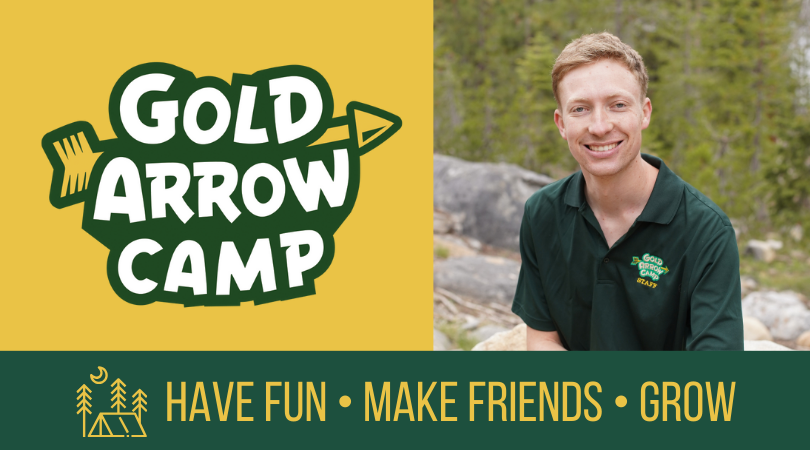

This week on the Gold Arrow Camp Podcast, Sunshine chats with fourteen-year veteran camper and staff member, Ben “Bagel” Bronstein about the community and positive culture that keep pulling him back for another summer at good ol’ GAC!
Bagel shares about what he enjoyed about being a camper and what he still enjoys today as a staff member.
“Especially when I came back on my own, I really realized the community I could build on my own at camp and how special it was a place to do that.”
-Bagel
Podcast Credits
Music by Henry “Dobro” Johns
Narration (intro & outro) by Henry “Bravo” Pederson
Produced by JRS Production Creative Audio
Podcast: Play in new window | Download
Subscribe: Spotify | Email | RSS
Episode 75: Creating a Happier World with Airborne
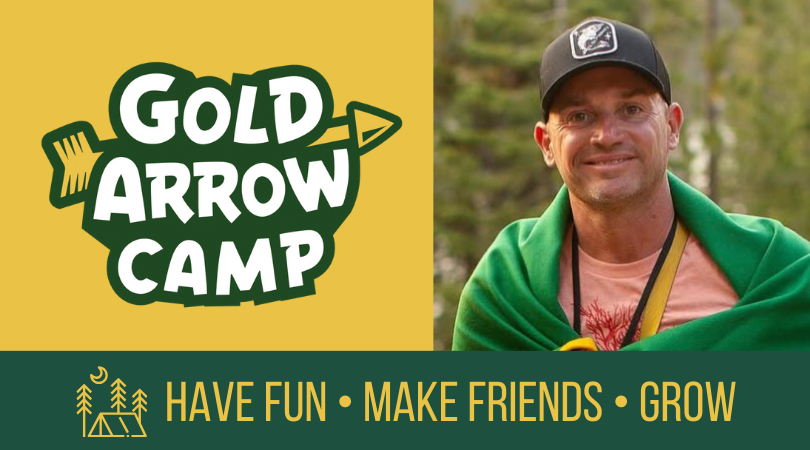
Welcome to the Gold Arrow Camp Podcast’s 2025 Season! We’re kicking off the season with a series on “Creating a Happier World,” because our vision at GAC is to create a happier world, one camper at a time.
In this episode, Audrey “Sunshine” Monke chats with Aaron “Airborne” Johnson about many topics related to creating and being part of positive communities for kids. Airborne’s GAC story started back in 1999, when he joined our staff as a Group Counselor. This summer (2025), he’ll be at our Shaver Island outpost camp during Session #2, serving as our Shaver Host. In the role of Shaver Host, Airborne provides leadership and support for our campers and staff while they’re on Shaver Island, which is about 20 minutes from our “Main Camp” location on Huntington Lake. When he’s not at GAC, Airborne serves as principal of Ironwood Elementary School in Tucson, Arizona.
Resources Discussed
Sunshine & Chelster’s Parent Orientation that includes information about parent expectations, reviewing camper standards of behavior, camper medications, communication during your camper’s stay at GAC, and more!
5 Steps to Help Kids Resolve Conflicts, Sunshine Parenting:
Conflict Resolution Wheel
How Big is My Problem?
“Effortful Fun” Laura Vanderkam
Podcast Credits
Music by Henry “Dobro” Johns
Narration (intro & outro) by Henry “Bravo” Pederson
Produced by JRS Production Creative Audio
Podcast: Play in new window | Download
Subscribe: Spotify | Email | RSS
Start the Year with Some GAC Goals
January is a great time to reevaluate priorities and set goals for the new year. One way to help children and young adults establish a strong commitment to a goal is to create a goal as a family. The Gottman Institute states, “Families who make goals together, keep goals together,” and Kelsey Down explains the benefits of creating a family goal:
“Many of our routines are built around work and family, but your autonomy and ability to make personal changes to your life can be undermined by your greater responsibilities. So if you want to exercise more or eat healthier, you are more likely to do so if your other family members exercise with you and eat the same things you do. But if you are the only one in your family that is actively working towards a goal, constantly removing yourself from your other family members’ habits (e.g. eating a salad during family pizza night) will eventually erode your desire to keep your resolutions. You might stick with eating salads for a while, but that pepperoni pizza will be more tempting when everyone else is enjoying it but you. You shouldn’t force your family to do what you’re doing, especially if they don’t want or need to, but you can easily find ways for you and your family to work together and achieve a common goal.”
If you want your children to unplug more or spend more time in nature, consider creating a goal in which everyone participates equally as a family, and framing the goal as a SMART goal (specific, measurable, achievable, relevant, and time-bound).
After two weeks (or more!) at Gold Arrow Camp, many campers are motivated to continue some of their camp habits – like using their phone less or practicing the friendship skills they used at camp. January is a great opportunity to refocus on some of those practices and intentions. In Audrey “Sunshine” Monke’s book Happy Campers, Audrey writes about the power of bringing the magic of camp (and the habits we learn while going to camp) home. Here are five ideas inspired by our healthy habits at GAC to help your family come up with a family goal for 2024.
1. Complete the 1,000 Hours Outside Challenge!
1,000 Hours Outside is a “movement to reclaim childhood, reconnect families, and live a fuller life.” The goal is to spend 1,000 hours outside in one year. 1,000 Hours Outside has free tracker sheets that are available to download. There are many benefits to spending time outside, however the National Wildlife Federation found that the average American child spends four to seven minutes in unstructured outdoor play each day. As a family, brainstorm ways to spend more time outside in 2024! Every Kid Outdoors provides families of 4th graders with free passes to all of the national parks. Create a list of different national parks, trails, hikes, local parks, and places to visit as a family, or plan a bigger outdoor adventure and go on a family camping trip!
2. Come up with fun, screen-free activities and set screen-time limits as a family.
Decide what would work best for your whole family (both parents & kids!), and come up with parameters that you agree on as a family. Maybe everyone agrees to plug in and turn off their phones by 8pm each night, or you could download an app that helps everyone in your family monitor their screen time and social media usage and create a family challenge (maybe with prizes!) for whoever uses their screens the least. In Happy Campers, Audrey shares a great conversation format for talking about screens with your children. As a family, consider brainstorming fun screen-free activities that you want to do together in 2024, for example, a card game every Wednesday night, or a hike or bike ride together every Sunday. Write your ideas down and post them somewhere you’ll see them, or create a checklist so you can check off as you try each person’s suggestions.
3. Set a family reading goal.
At Gold Arrow Camp, counselors read to campers every night (even our oldest campers!). Talk about which books each family member is going to read this year, or establish a daily or weekly time when your family reads together. For younger children, select a chapter book to read as a family. Make visiting the local library part of your weekly routine. My family enjoys following each other on Goodreads (a reading social media platform). When we see each other in person, we have lots of great conversations about what we’re reading and give each other book recommendations.
4. Establish a sharing practice.
At Gold Arrow Camp, campers share their highs and lows, or something else about their day, every night at campfire. In Happy Campers, Audrey discusses the benefits of daily sharing. Find a time for your family to connect and share each day. This could be sharing highs and lows, or responding to a different question each night at dinner. If evenings are busy, find a time when you are consistently together as a family (breakfast, right before bed, in the car) and establish a routine of sharing, listening, and connecting with each other!
5. Pick a theme for the year!
Each year at Gold Arrow Camp, we choose a summer theme. In 2023, our theme was Count on Me, and we talked about ways we can be more dependable and reliable people! Here is more information on choosing a family theme.
More Resources:
*Free PDF Download* Screen Time: 3 Steps to a Successful Family Meeting
The Gottman Institute: Make Your New Year’s Resolutions a Family Affair
How Nature Can Make You Kinder, Happier, and More Creative
10 Surprising Things Kids Learn at Camp
I would not be the person I am today without camp.
-15-year-old camper
My three decades of camp experience, coupled with my own and others’ research, have shaped my long-held opinion that camp experiences benefit children in profound ways. Yet even I was astounded by the revelations shared at our closing campfires last summer for the campers who were completing their final seasons as campers. These campfires were an emotional time to say goodbye to our high school kids heading into 10th grade.
After their counselors spoke about each of them and shared words of affirmation and encouragement, I asked the kids if they wanted to share anything they had learned at camp they might use throughout their lives. I knew we had a special gig going at camp, and that we were providing a positive, healthy community where kids could have fun, make friends, and grow, but I hadn’t heard the specific life lessons that they believed they learned at camp in such direct and heartfelt words spoken out loud.
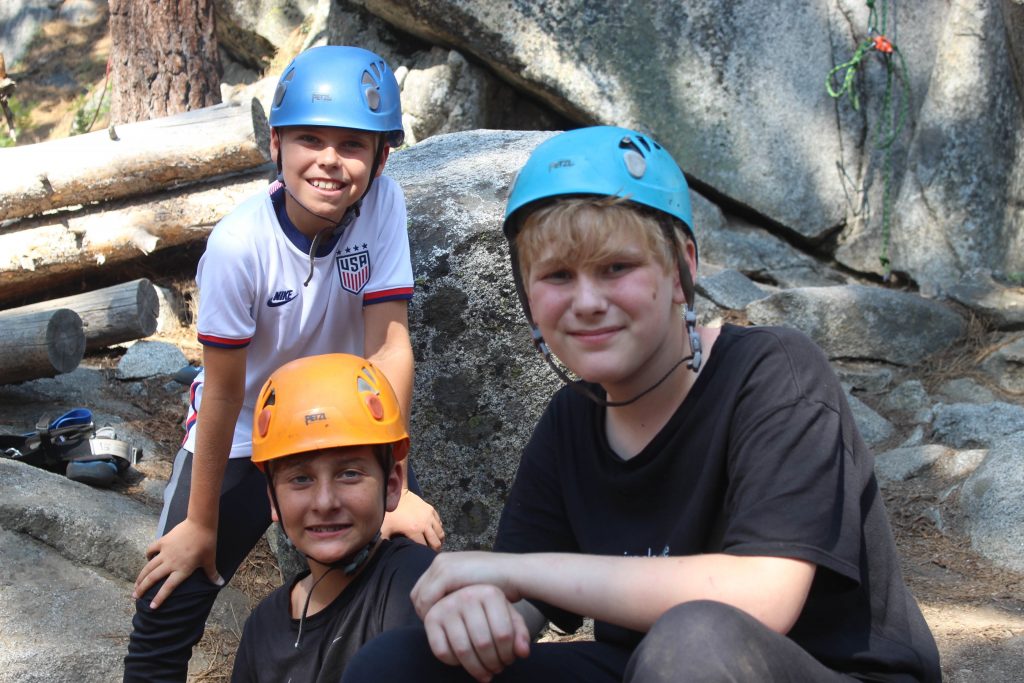
Our oldest campers shared that they learned how to be happy, “to just have fun and not worry so much.” In a time when so many young people struggle with depression and anxiety, it was heartwarming to hear that, for many of them, camp is their “happy place.”
Campers also said they learned to be happy in their own skin, gaining confidence in their abilities, speaking up for things they believe in, and worrying less about what others think of them. “I have the freedom to be myself,” said one. Added another, “When I am at camp, I am a better version of myself than anywhere else on Earth.”
Being their truest selves, they found, paved the way for them to meet new people and explore new friendships. “Camp has made me a more open and caring person,” said one. At camp, many said they experienced a sense of belonging they didn’t always feel in their schools.
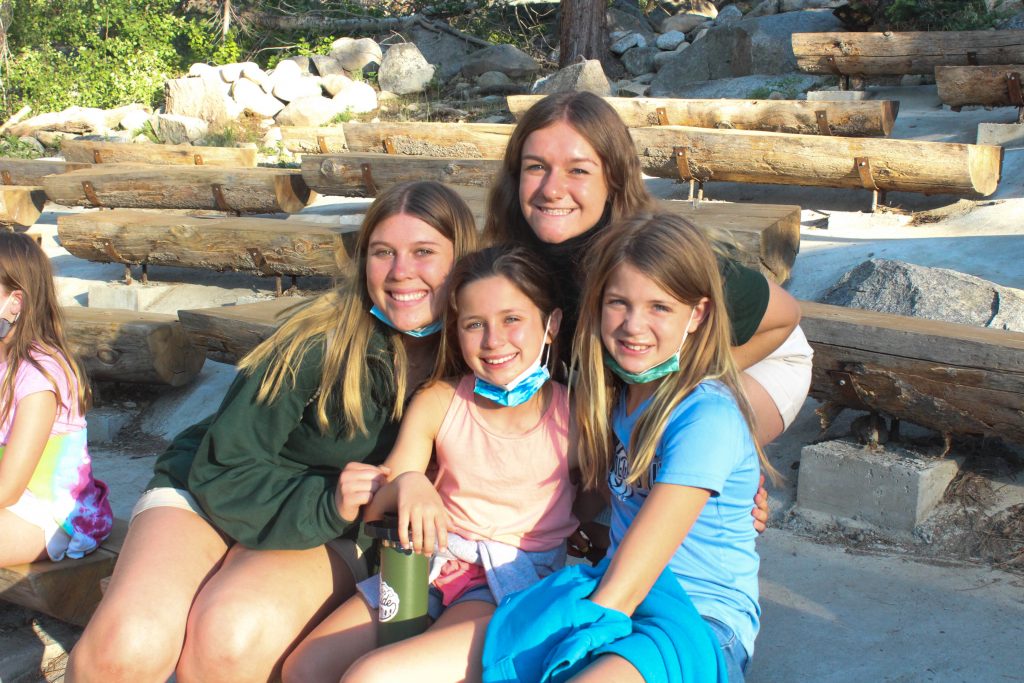
This comfort at camp enabled them to take risks and conquer fears, and they challenged themselves in new and adventurous ways. It didn’t matter if they failed, they said, because they were surrounded by counselors and friends who supported them no matter the outcome. “I’ve learned that the magic happens,” said one, “outside of your comfort zone.”
But among the sentiments that cheered me most from those older campers was the idea that camp helped them learn to live in the moment, to enjoy where they were in the Great Outdoors, and not worry about what the future held. Said one, “I found a passion for the outdoors I thought I would never have.” That’s what tends to happen, of course, when kids are unplugged from their technology for a time. Experiences and relationships are more vibrant and real, and kids expressed how great it was to connect face-to-face.
I really loved the way one camper put it: “When I was put in a cabin group with seven other random girls, we bonded really well and didn’t judge each other before we got to know them, because we had never seen each other’s social media profiles.”
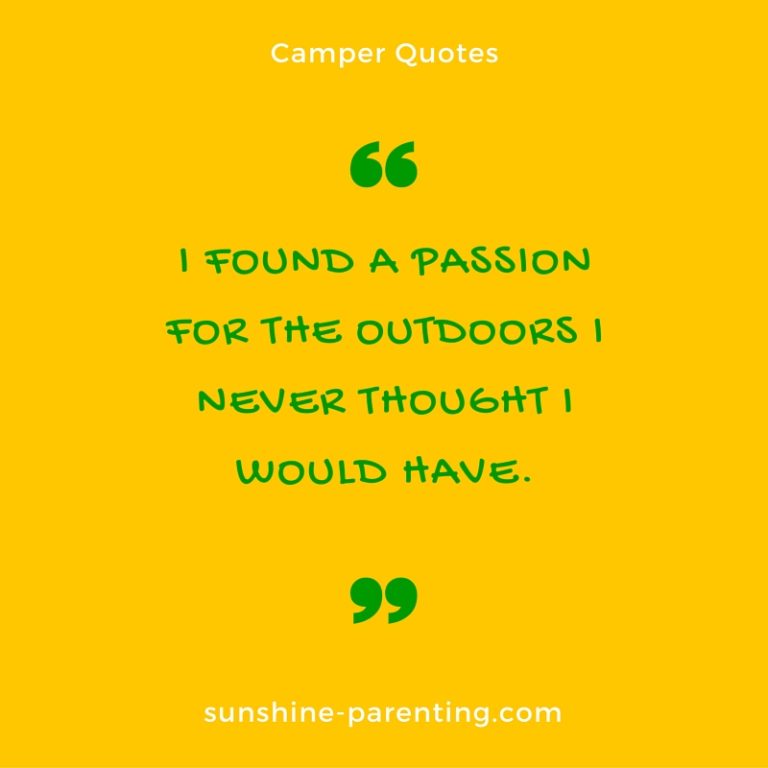
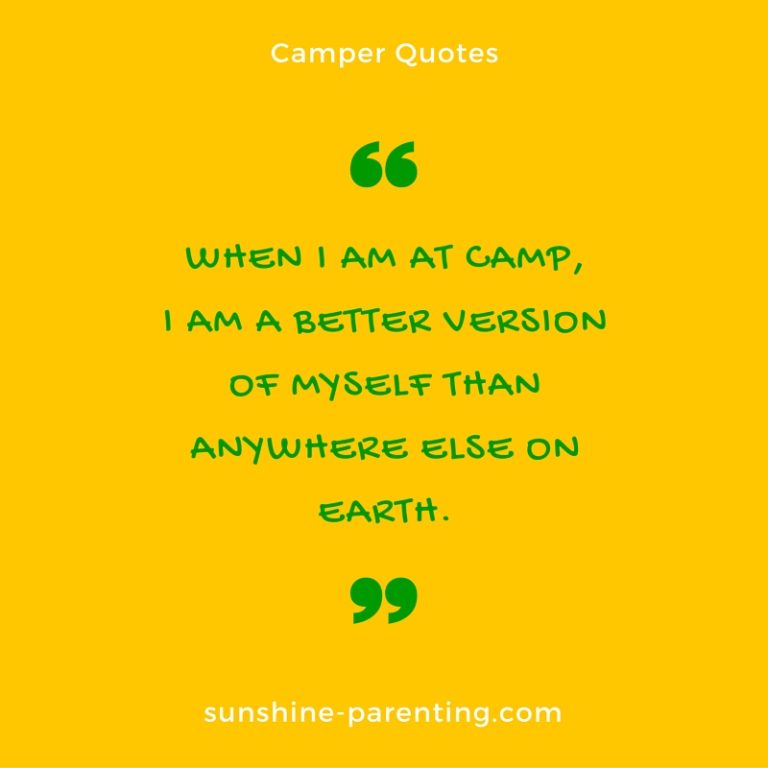
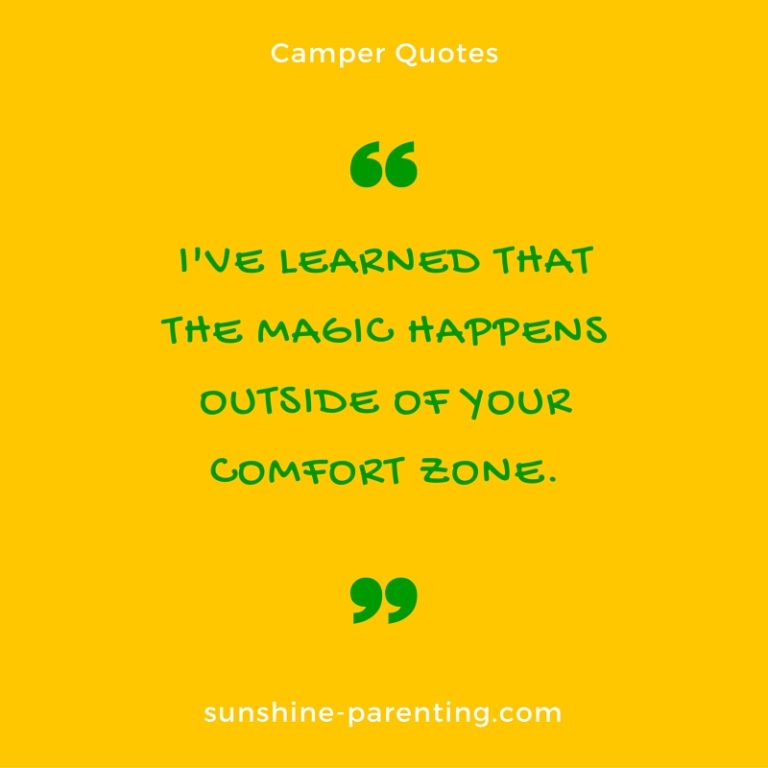
I reflect back on those and other words and see that these 15-year-olds have wisdom that many adults have yet to acquire. Truly, I was blown away by what they said they learned at camp, and I could see in their spirits what one of them expressed: “Being at camp has influenced me to be a better person who wants to be a leader, not a follower.” I feel honored to know these articulate, honest, and thoughtful young adults who do not fit the teenage stereotype and are far more mature than I was at their age. These kids chose sleeping outdoors and sitting around a campfire instead of hunching over their phones.
When I look back on those memorable campfires, I feel deep gratitude for our oldest campers, the life-changing experiences they had at camp, and that I had the opportunity to play a small role in their learning. I am also grateful for the parents of these kids who were willing to share time with their children, and a piece of their childhoods, with our camp. And I am reminded, as a parent, that although there are many things I want my kids to learn—and I’d love to be their teacher—many of their best lessons will come from experiences apart from, and from someone other than, me.
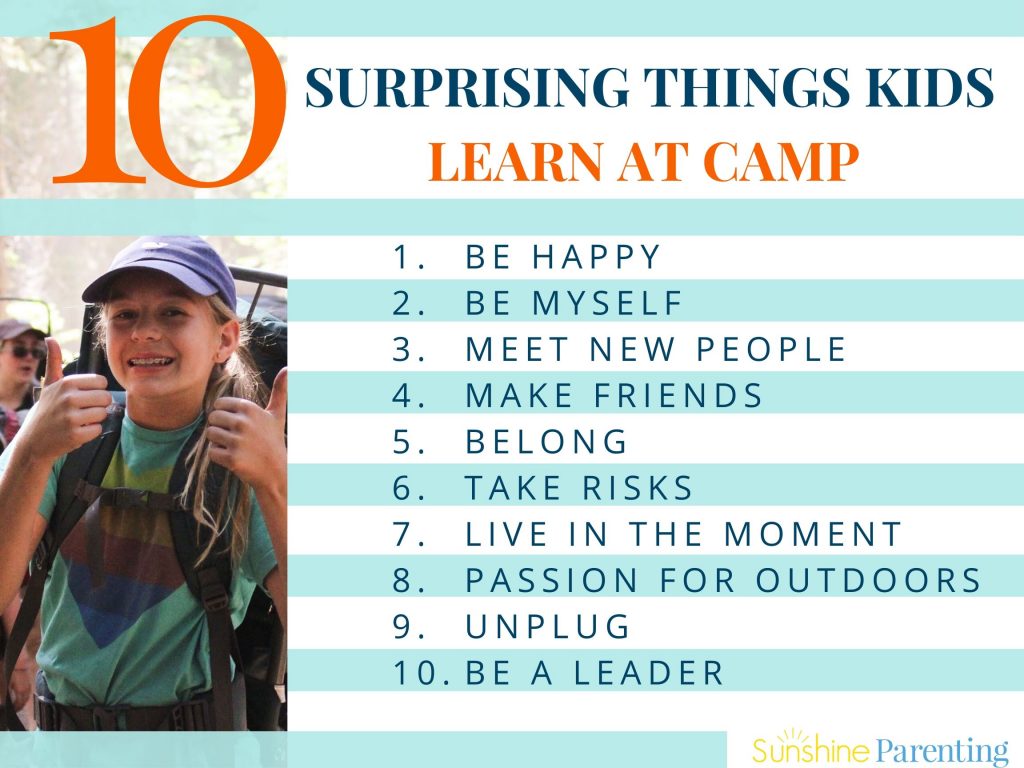
Article originally published at Sunshine Parenting.
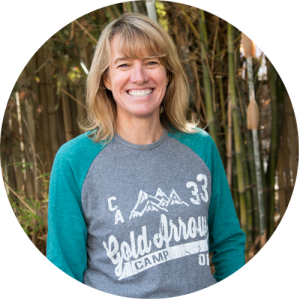
Audrey “Sunshine” Monke, MA, has been the owner of Gold Arrow Camp since 1989 and currently serves as the Chief Visionary Officer. In addition to her vision-casting and mentoring at GAC, Sunshine is an author (Happy Campers: 9 Summer Camp Secrets for Raising Kids Who Become Thriving Adults), podcast host, speaker and coach on the topics of parenting, social skills, and happiness. Find out more at her website, Sunshine Parenting.
Visit Sunshine Parenting for more summer camp-related posts & podcast episodes.
How To Pack For Camp
Packing for camp is the start of your child’s independent camp experience. Please have your child participate in packing for camp so that he/she knows where to find their clothing and other items. Campers who don’t participate in packing often don’t know what they have or where to find things, which makes it harder to acclimate to camp. Be sure to download and print the appropriate packing list.
Luggage
- For our two-week (and longer) sessions, we recommend campers pack in two pieces of luggage. One larger piece (soft-sided trunk or footlocker) can be used for most of the camper’s clothing. A smaller duffle bag can be used for sleeping bag, pillow, and other equipment that doesn’t fit in the main piece of luggage. The smaller duffle bag will be used for campers who travel to and from Shaver Lake. For campers traveling by air and coming with only one piece of luggage, a backpack or small sport-sized duffle bag can be packed within your main bag and used for the Shaver trip. A small backpack is also useful for carrying a towel, shower supplies, or other equipment around the camp. Please note that campers do not unpack into drawers or cubbies in the cabin during their stay.
- All luggage must be tagged with camper’s name. Luggage tags are sent to camp families in April. Additional luggage tags will be available at the bus stops and camp on the first day of each session.
Labels
- All of your camper’s clothing and belongings must be clearly labeled with your camper’s full name. Items that are not labeled are unlikely to be returned to your camper if lost in the cabin or around camp. A sharpie marker, iron-on or stick-on labels, or stamps all work for labeling.
Shoes
- Our terrain at camp is rough and uneven, and appropriate footwear is a safety requirement. Please make sure your camper has at least one pair of closed-heal and closed-toe shoes that have adequate tread for walking on rocks, dirt, and other uneven surfaces. Running shoes, hiking shoes, or other athletic footwear work well at camp, as long as they fit the camper well and have adequate tread. Other types of shoes (flip flops, Crocs, Converse, etc.) can be worn in the cabin and at the waterfront, but closed-heal, closed-toe shoes must be worn while walking around camp, participating in activities, and traveling to and from camp.
Younger Campers
- For younger campers, we recommend placing like-items together in their main piece of luggage to easily access what they need for the day or activity. For example, stack all short-sleeve t-shirts together, include underwear in a packing cube or plastic zip-lock bag, group pants in one area, etc.
Climate
- Gold Arrow Camp is located at 7000 feet elevation, and our night time, mountain temperatures can get very chilly. Be sure your camper’s sleeping bag is rated to at least 30 degrees F (or lower), so that your camper will be warm at night. Sleeping bags used for indoor, overnight sleeping are not sufficiently insulated for camp use.
What Not To Bring
- Do not send any of these items, as they are not allowed: food, candy (including gum), cash, water guns, silly string, water balloons, sling shots (or any other weapons), electronic games, headphones, e-readers, cell phones, fireworks, knives, matches, lighters, tobacco, alcohol, or illegal drugs. For campers traveling by air, cell phones, headphones, and travel money can be held in our office.
- Do not send valuable items such as expensive cameras and jewelry. We recommend campers use a disposable camera marked with their name.
- Send old clothes that do not require dry cleaning or special washing. Laundry service is provided for campers staying three weeks or longer. Urgent laundry will be done for campers staying for a one or two-week session. Do not bring irreplaceable items to camp, as they could get lost or damaged.
- Please do not send any personal athletic equipment (water skis, fishing poles, etc.). We provide top quality equipment that is sized for our campers.
Messages For An Anxious Camper
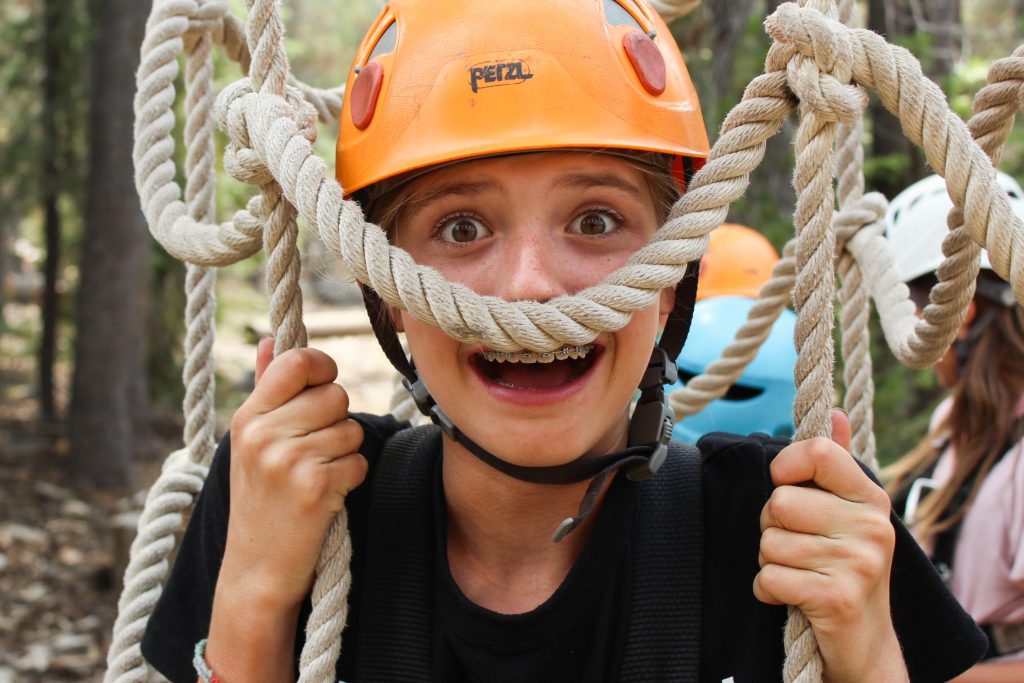
Read more of Sunshine’s camp-related posts at her website, Sunshine Parenting.
“Children want to be independent, and they realize that they cannot be truly independent until they beat homesickness, even when they have a painful case of it.”
– Michael Thompson, PhD., Homesick and Happy
Recently I spoke with a mom whose 11-year-old son is coming to camp in a few days. He’s nervous. He had a negative experience at a one-week science camp. He doesn’t think he can “make it for two weeks” and is worried he’ll be too homesick to make it at camp. I chatted with the mom and gave her some key messages to communicate to her son. She asked for them in bullet points in an email, and I thought there are probably others who might benefit from this same list, so I’m sharing this with anyone who has a child suffering from pre-camp anxiety.
Before I share my list, let me say that if you are not a camp proponent and don’t plan on sending your child to camp, you should probably not read any further. I am a huge supporter of camp and recently had a JC (Junior Counselor) tell me that “Camp made her who she is today.” So, I think that camp is a great thing for building kids’ independence and confidence. I have also seen many kids work through some pretty painful emotions at camp, so I know that camp is not easy for all kids.
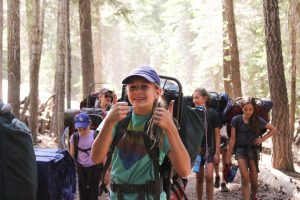 We have 7-year-olds at our camp who do great during our two-week sessions. They are the ones who’ve begged their parents to let them come to camp and generally have older siblings who’ve attended camp. I also talk to a lot of parents with older kids who “aren’t sure if they’re ready for camp.” One thing I’ve learned after close to three decades at camp is that the same kids who are anxious and hesitant about going to camp when they’re nine or ten will still be anxious when they’re 13. And they may not be interested in going away to college when they’re 18, either.
We have 7-year-olds at our camp who do great during our two-week sessions. They are the ones who’ve begged their parents to let them come to camp and generally have older siblings who’ve attended camp. I also talk to a lot of parents with older kids who “aren’t sure if they’re ready for camp.” One thing I’ve learned after close to three decades at camp is that the same kids who are anxious and hesitant about going to camp when they’re nine or ten will still be anxious when they’re 13. And they may not be interested in going away to college when they’re 18, either.
So, as a parent, you need to decide how to approach your child’s separation anxiety, as well as your own. You can avoid it and not send them to camp and hope that they develop independence in other ways, which is definitely possible. Or, you can bite the bullet, give them these positive messages, and send them off to camp with a smile, knowing that it may be hard for them, but they will grow from the experience.
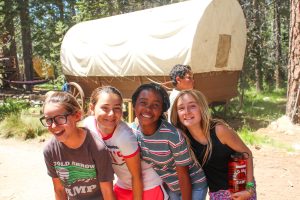
In Michael Thompson, PhD.’s book Homesick and Happy, he says “It is the very challenge of camp that makes it such a life-changing experience for so many children.” I know there are many parents and children who just can’t stomach the idea of going through some painful time apart. Again, you need not read further if you are not sending your reluctant child to camp.
This post is for those of you who have decided that your child is going to camp, and especially for those of you who had a previously excited camper who is now having last-minute camp anxiety. Here are some messages you can give prior to dropping your camper at the bus or at camp. Pick and choose, and of course, use your own words, but acknowledge your child’s feelings and empathize with them while holding firm in your confidence in their ability to succeed and your belief that camp will be good for them.
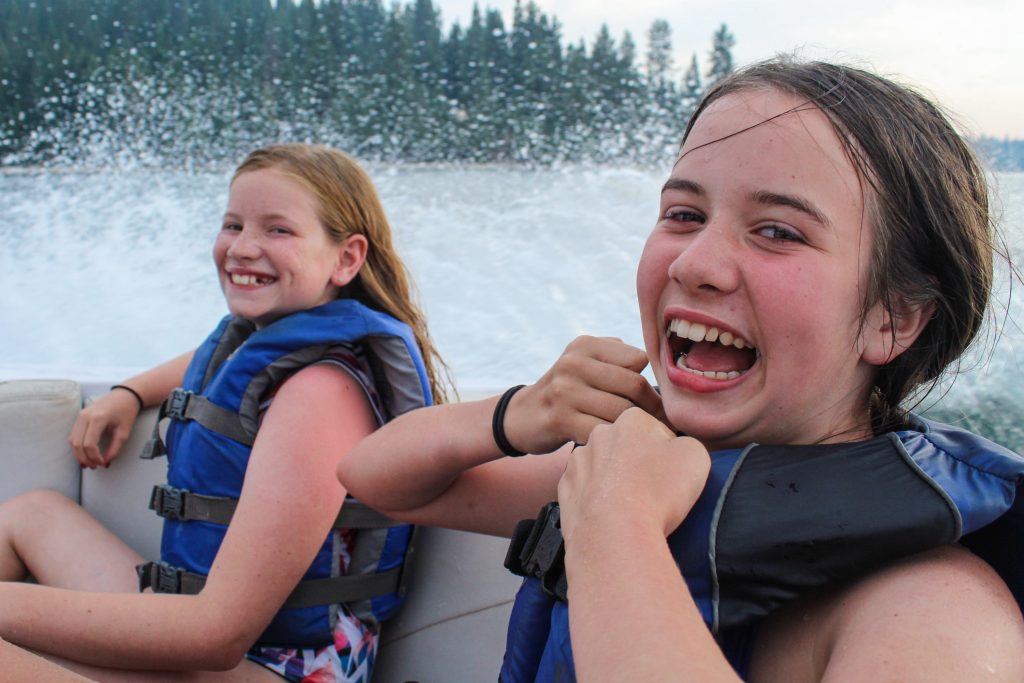
Without further ado, here are some messages to give to your anxious camper:
-
Let them know that missing home is okay.
“You may feel homesick, and that’s okay. A lot of kids feel that way. That just means that you love us and you love home. I feel homesick when I’m on trips, too. Missing home is part of life. But I know you can still have fun at camp, even if you feel sad sometimes.”
-
Reassure them that there are people at camp who will take care of their needs.
“There are adults at camp (counselors, directors) who are there to take care of you and help you with anything you need. They can help with things you normally come to me about. Let them know if you are feeling sad, and they can help you. They have lots of experience working with kids who are away from home for the first time.”
-
Talk with your child honestly about the importance of starting to develop some independence.
Something along the lines of: “It may seem like a long way off, but in a few years, you’ll be ready for college. I want you to feel confident in your ability to live away from me so that you can choose any school you like, even if it’s far away from home. Think of camp like your practice time for when you’re older and ready to move away for school or a job. You’ll get better at being independent by starting now, when you’re young, with short spurts of time away. Some kids aren’t doing well when they start college because they don’t have any experience being away from home. I want you to feel great when you go to college because you’ll know that you’ve already been successful with short camp stays.”
-
Share the reality that many good things in life come with some pain and failure.
If you have a story from your own life of something that you had to work hard at or had to go through difficulties in order to master, this is a great time to share. Something along the lines of, “Many good things in life aren’t easy at first. Learning a new sport or trying something new is really hard. Sometimes you have to get out of your comfort zone to discover something you really love. If you never go through anything hard, you’re going to miss out on some great experiences. The first few days of camp may be hard, and that’s okay. I know you’ll work through it and figure out what makes you feel better. I have confidence in you, and I am so proud of you for going to camp and trying this new adventure!
-
Let them know that you are confident in them.
“I am so excited that you get to go to camp this year. I know it’s going to be such a great experience for you and that you are ready for this.” If you went to camp, share with your camper what you liked about it and how you grew from the experience.
-
Make sure they know you want to hear about everything.
“Every day comes with its good and bad parts. When you’re at camp, I want you to write me letters and tell me all of the stuff that you’re doing and feeling. If you feel homesick at rest time, tell me about it, and also tell me what you did to help yourself. Did you talk to your counselor? Keep yourself busy playing cards with friends? Write me a letter? I also want you to share good stuff. Did you get your favorite food for lunch? Try rock climbing? Get up on a kneeboard? I want to hear both the good and bad things about camp in your letters.”
-
If your camper asks you if you will pick him up if he’s sad, you need to let him know that you are not going to pick him up early.
“Even if you’re a little homesick for the whole time you’re at camp, you’re going to feel so much better about the experience if you stick it out and make the best of it. Most kids feel better after a few days of getting settled in and adjusted, and I know you’ll feel great once you let yourself relax and just start enjoying all the fun things at camp. I’m not going to pick you up early, no matter what, because I know you will feel really proud of yourself for making it through camp, even if you have some hard days.”
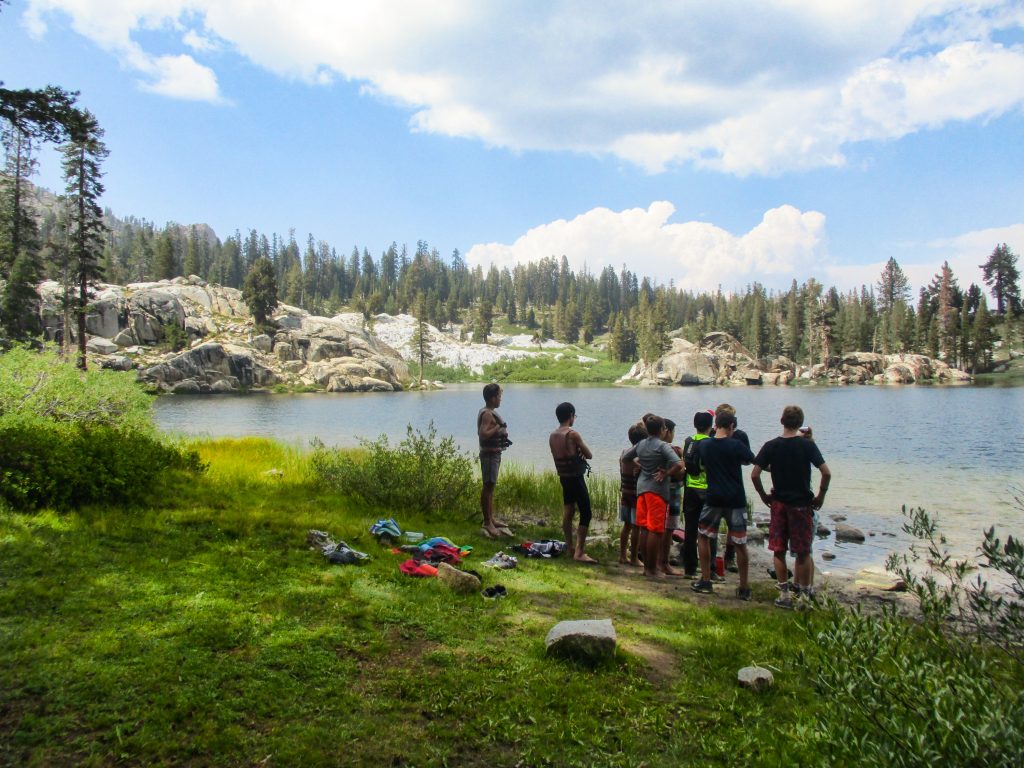
In Homesick and Happy, Thompson says, “Homesickness is not a psychiatric illness. It is not a disorder. It is the natural, inevitable consequence of leaving home. Every child is going to feel it, more or less, sooner or later. Every adult has had to face it and overcome it at some point in life … If you cannot master it, you cannot leave home.”
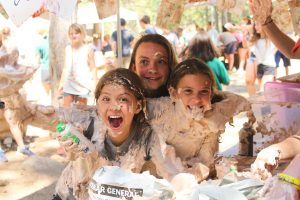
I would like to note that you do not need to use all of these messages but instead choose the ones you think will resonate most with your child. What’s most important is that you express confidence in your child and in the camp experience. These same messages would be great as responses to a sad letter you receive from your camper.
I always tell the kids that the fun and happy feelings at camp usually far outweigh any sad feelings. Many kids tell me they “don’t feel homesick at all,” but there are some who struggle, especially during their first summer. Those kids seem to grow the most and feel the most pride in their accomplishment of staying at camp. If you are feeling worried about how your child will do at camp, know that you are giving your child a precious gift by allowing them this special time where they get to grow their wings.
The Blessing of the Least Favorite Activity
Wendy Mogel’s best selling book, The Blessing of a Skinned Knee, resonated with me.
I can relate much of her message to camp and to my own family. I heard Dr. Mogel speak at a camp conference several years ago, and she continues to be active in the camp community. Many of our camp parents have heard her speak at school parenting events or have read her book. If you haven’t had a chance to read The Blessing of a Skinned Knee, I highly recommend it. In addition to sharing about the importance of letting our kids take healthy risks, and not always rescuing them from failure, Mogel gives many other valuable insights. She has recognized the value of camp experiences in the development of emotionally healthy kids, as you can read in the article “Camp Blessings” on her website.
A question I often get asked, especially by kids who haven’t yet been to camp, is “What if I don’t want to do an activity?” Sometimes it starts with a statement, “I don’t like horses. Do I have to do that activity?”
My short answer is, “You won’t be forced to do any activities, but you will still go with your group, and you will be encouraged to try.”
I think there are three main reasons kids don’t want to do a particular activity, and they are the same reasons why adults often choose to forgo some recreational options:
Negative Experience in the Past
A previous negative experience with the activity, usually not at camp and not with experienced instructors. Falling off a horse, being dragged behind a ski boat and not getting up, or getting lost on a hike are all examples of negative experiences that make a person naturally inclined not to want to try again.
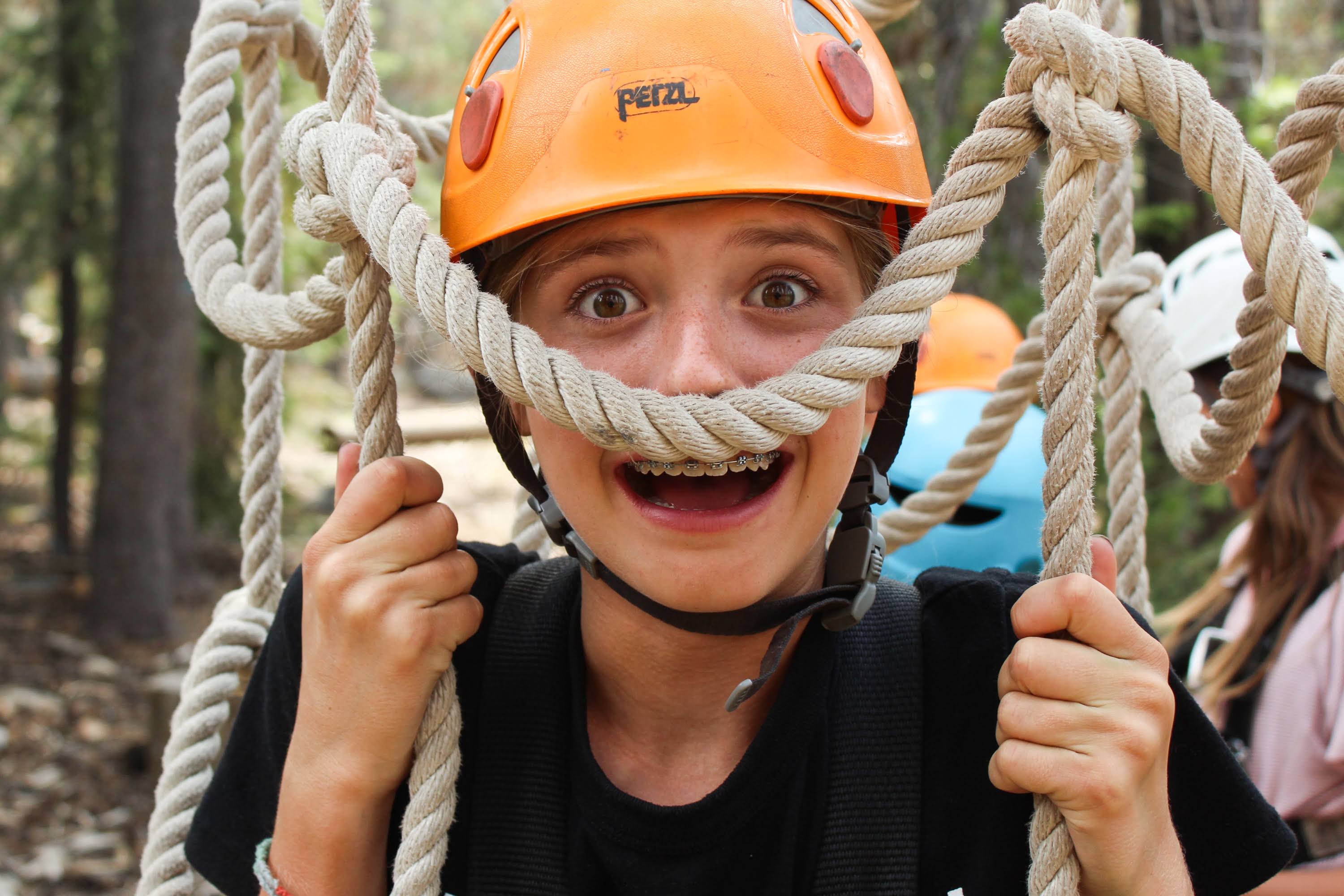
Fear
Fear of being humiliated. Fear of failure. Fear of heights. Fear of deep lake water. Fear of rocks. Fear of going to the bathroom in the woods. Fear of getting hurt. The list goes on and on.
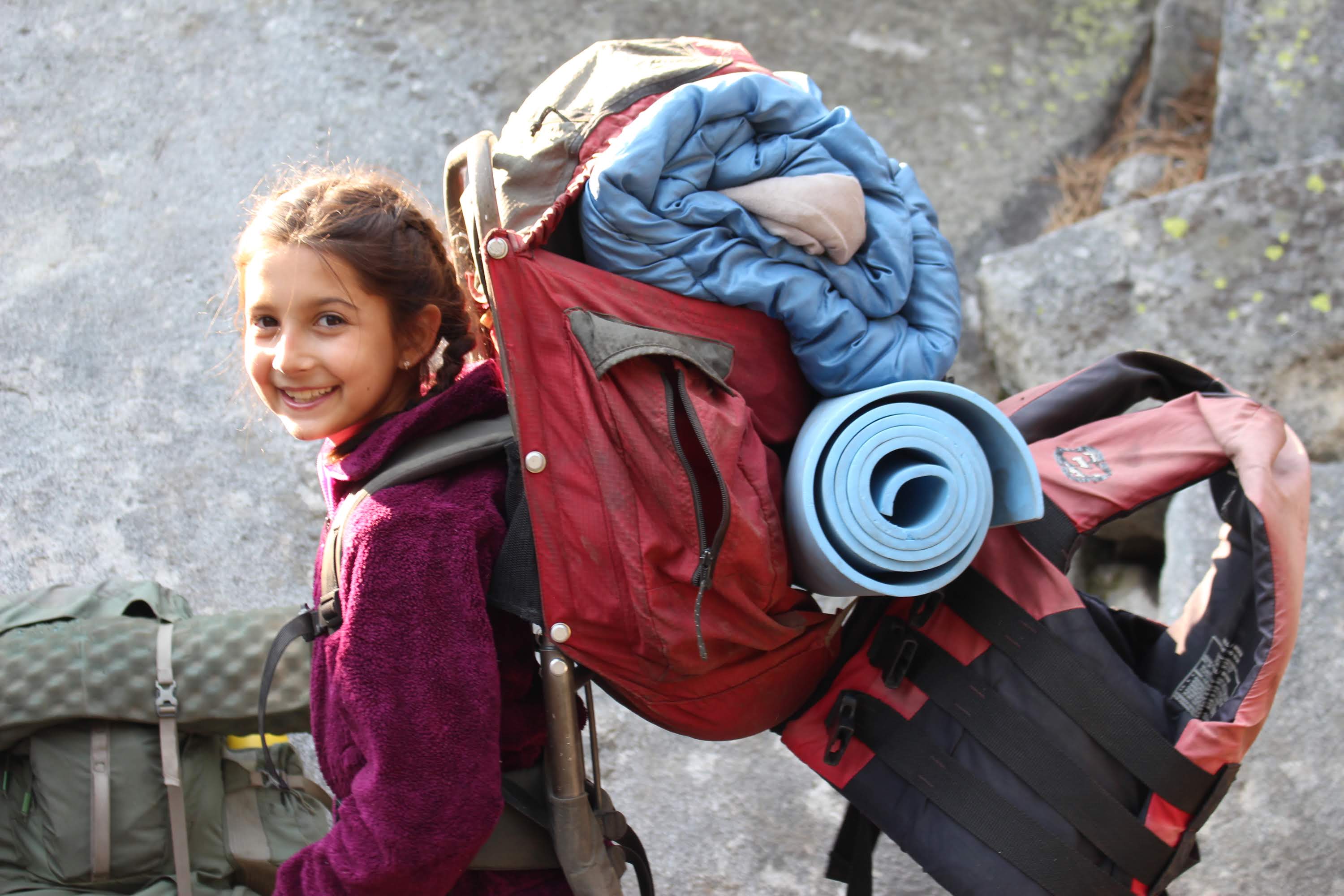
Not in Their Comfort Zone
Finally, another reason kids don’t want to try an activity is because, based on their perception of themselves or their past successes/failures, they think they won’t like it. It’s not in their normal repertoire of things they like and/or are good at.
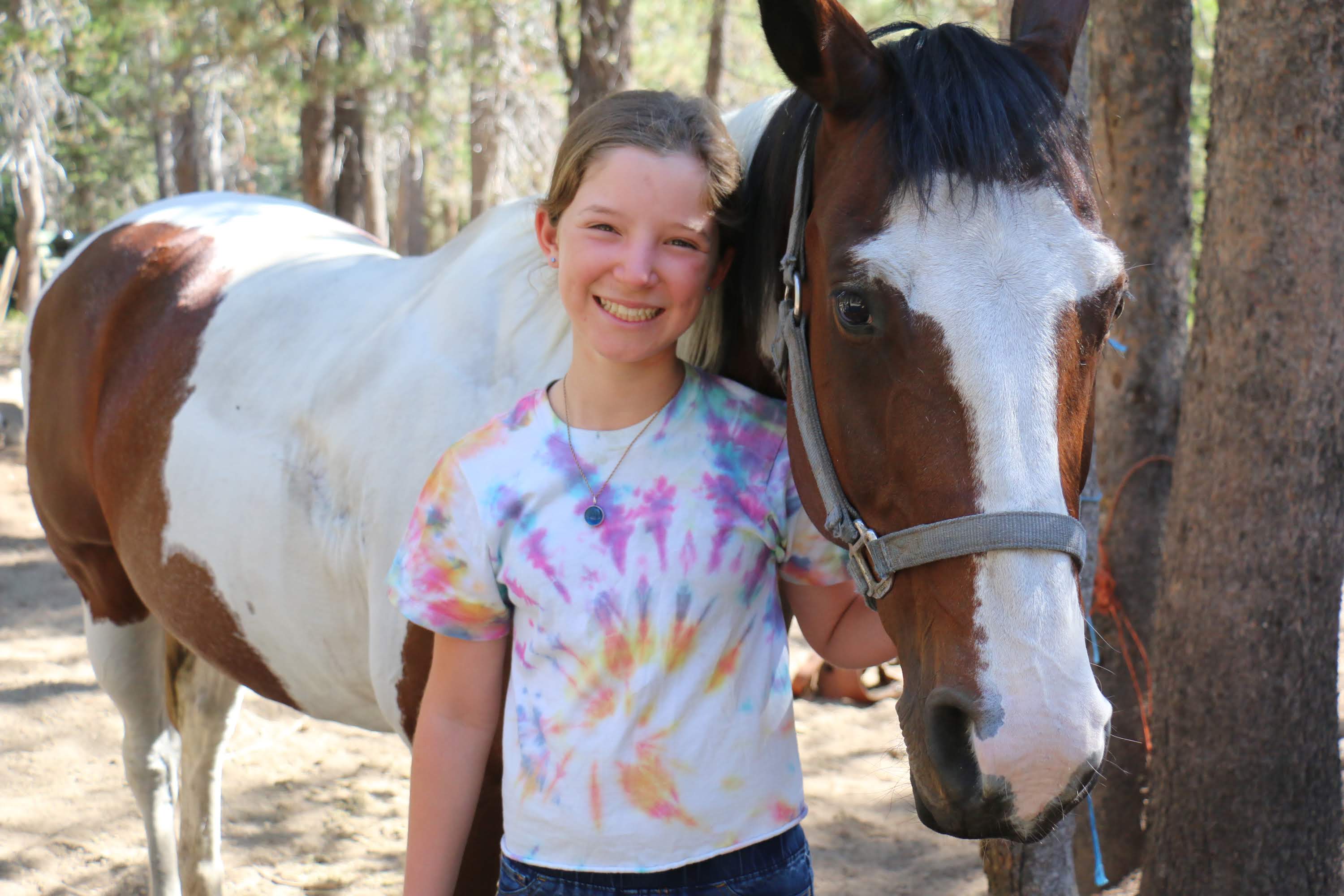
I’m sure there are other reasons for kids to not want to do an activity, but these are three that readily come to mind from what campers have told me over the years. Interestingly, the reasons kids don’t want to do an activity are the very reason trying the activity may be the best thing that happens at camp for that camper.
If a child doesn’t want to do an activity because of a previous negative activity, trying it at camp could lead to either a changed mind (and a new activity they like), or, at the very least, a not-as-negative experience to remember.
If a camper doesn’t want to do an activity because of fear, then trying the activity could be the most life-changing event that occurs for that camper during their camp stay. Overcoming fears and challenging oneself to attempt something that seems impossible can lead to great feelings of accomplishment and improved confidence. With the support and encouragement from cabin mates and counselors, campers feel on top of the world after successfully trying something they feared. For the camper with a fear of heights, climbing half-way up the ladder on the high ropes course will be celebrated as a huge accomplishment, and one that can make him/her proud. This is an example of something hard that leads to something good, a theme that Dr. Mogel stresses. The camp environment offers a supportive place for kids to learn how to overcome fears and accomplish things they didn’t think were possible.
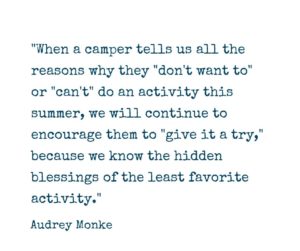 If a camper doesn’t want to do an activity because they don’t think they’ll like it based on their preferences or perception of themselves, trying something different offers an opportunity for expanded confidence. A camper who sees himself as non-athletic and more adept at target sports may shy away from the more physical activities, yet trying and accomplishing them could change his perception of himself in a positive way. A camper who likes shopping and clothes and sees herself as not an “outdoorsy” kind of person may dread going on a backpacking trip. Yet, the experience of cooking and sleeping outdoors could lead to an expanded view of herself and an appreciation for the many different facets of a personality. Sometimes, the activity a camper thought would be their least favorite becomes a favorite!
If a camper doesn’t want to do an activity because they don’t think they’ll like it based on their preferences or perception of themselves, trying something different offers an opportunity for expanded confidence. A camper who sees himself as non-athletic and more adept at target sports may shy away from the more physical activities, yet trying and accomplishing them could change his perception of himself in a positive way. A camper who likes shopping and clothes and sees herself as not an “outdoorsy” kind of person may dread going on a backpacking trip. Yet, the experience of cooking and sleeping outdoors could lead to an expanded view of herself and an appreciation for the many different facets of a personality. Sometimes, the activity a camper thought would be their least favorite becomes a favorite!
So, when a camper tells us all the reasons why they “don’t want to” or “can’t” do an activity this summer, we will continue to encourage them to “give it a try,” because we know the hidden blessings of the least favorite activity.
Article originally published at Sunshine Parenting.

Audrey “Sunshine” Monke, MA, has been the owner of Gold Arrow Camp since 1989 and currently serves as the Chief Visionary Officer. In addition to her vision-casting and mentoring at GAC, Sunshine is an author (Happy Campers: 9 Summer Camp Secrets for Raising Kids Who Become Thriving Adults), podcast host, speaker and coach on the topics of parenting, social skills, and happiness. Find out more at her website, Sunshine Parenting.

